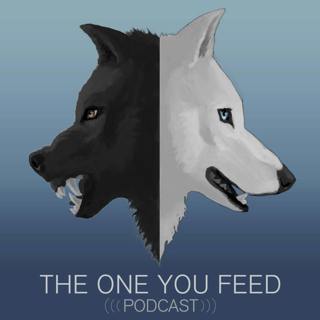
Deborah Schoeberlein David
Please help us out by taking our short 3 question survey and receive a free guide: The 5 Biggest Behavior Change Mistakes This week we talk to Deborah Schoeberlein David about integrating mindfulness into daily lifeDeborah Schoeberlein David is a teacher, education consultant and curriculum developer. Deborah's most recent book is Living Mindfully: At Home, At Work and in the World . An earlier book, Mindful Teaching and Teaching Mindfulness: A Guide for Anyone Who Teaches Anything, is now in its fourth reprint and has been translated into Spanish and Korean. Deborah's other publications include multiple articles in professional journals and trade magazines; and online postings, including more than 60 blogs for the Huffington Post.Our Sponsor this Week is Spirituality and Health Magazine. Click here for your free trial issue and special offer. In This Interview Deborah and I Discuss...The One You Feed parableHer new bookHow the mind naturally wandersHow mindfulness is not a panaceaBringing mindfulness into all aspects of our livesExploring different styles of meditationThe practice of adding in instead of adding onIntegrating mindfulness into activites that we are already doingFocus, Observe, RefocusLearning to break our habitual reaction patternsIncreasing the space between stimulus and response Please help us out by taking our short 3 question survey and receive a free guide: The 5 Biggest Behavior Change MistakesSee omnystudio.com/listener for privacy information. See Privacy Policy at https://art19.com/privacy and California Privacy Notice at https://art19.com/privacy#do-not-sell-my-info. Learn more about your ad choices. Visit megaphone.fm/adchoices
24 Marras 201553min

Mark Manson
This week we talk to Mark Manson about making sacrificesMark Manson is an author and personal development consultant. His writing is a different take on the self help genre. He calls it self help from a first-person perspective.He’s been published and quoted on CNN, Huffington Post, Business Insider, Yahoo! News, The Sydney Morning Herald and a variety of other publications. He is also the CEO and Founder of Infinity Squared Media LLC. His blog is read over 2 million times a month. Our Sponsor this Week is Athletic GreensClick here to get 50% off your first order!! In This Interview Mark and I Discuss...The One You Feed parableBeing aware of what we think is importantOpportunity CostThe fallacy of being able to do everythingThe sacrifice inherent in doing anything greatThe subtle art of not giving a F*!%The best friend test for relationships, its not what you thinkMark's issue with The SecretThe dangers of positive thinkingHow action can be the cause of motivationFor more show notes visit our web pageSee omnystudio.com/listener for privacy information. See Privacy Policy at https://art19.com/privacy and California Privacy Notice at https://art19.com/privacy#do-not-sell-my-info. Learn more about your ad choices. Visit megaphone.fm/adchoices
17 Marras 201541min

Eric and Chris
This week Eric and Chris get interviewedIt has been 100 episodes of The One You Feed and as a way to makr the occasion we asked our friend Greg from the Life on Purpose podcast to interview Chris and I together. We talk about why we started the show, what it's like making it and what we've learned from it. We also feature a song that each of us has written.Thanks to each and every one of you for listening to the show.You can hear the full version of Chris' song My Body Betrays Me hereYou can hear the full version of Eric's song Grass is Greener hereOur Sponsor this Week is Spirituality and Health Magazine. Click here for your free trial issue and special offer.See omnystudio.com/listener for privacy information. See Privacy Policy at https://art19.com/privacy and California Privacy Notice at https://art19.com/privacy#do-not-sell-my-info. Learn more about your ad choices. Visit megaphone.fm/adchoices
11 Marras 201555min

Steve Almond
This week we talk to Steve Almond about the good and bad in all of usSteve Almond spent seven years as a newspaper reporter in Texas and Florida before writing his first book, the story collection My Life in Heavy Metal. His books, Candyfreak, and Rock and Roll Will Save Your Life: A Book by and for the Fanatics Among Us were New York Times Bestsellers. His short fiction has been included in The Best American Short Stories and Pushcart Prize anthologies, and his collection, God Bless America, won the Paterson Prize for Fiction. Almond writes commentary and journalism regularly for The New York Times Magazine and The Boston Globe. A former sports reporter and play-by-play man, his latst book is called Against Football: One Fan's Reluctant Manifesto.He is also the co host of the popular Dear Sugar podcast that he co-hosts with Cheryl Strayed. Our Sponsor this Week is Athletic GreensClick here to get 50% off your first order!! In This Interview Steve and I Discuss...The beginnings of the Dear Sugar columnBeing funny and poignant at the same timeWhat makes good writingHow to make an advice column goodThe culture of treating everything like a joke or with ironyKurt VonnegutLanguage, storytelling and humor as a way to fight of despairThe declining American cultureThe One You Feed parableThe two stories that we are constantly telling the worldHow the two wolves keep fighting all our livesThe flattening out of character in American discourseHow we all contain great and terrible qualitiesHow our culture makes a god out of convenienceFor more show notes visit our websiteSee omnystudio.com/listener for privacy information. See Privacy Policy at https://art19.com/privacy and California Privacy Notice at https://art19.com/privacy#do-not-sell-my-info. Learn more about your ad choices. Visit megaphone.fm/adchoices
3 Marras 201556min

don Miguel Ruiz
© Noel Cianci, 2012[powerpress] This week we talk to don Miguel Ruiz about the stories we tell ourselvesDon Miguel Ruiz is a renowned spiritual teacher and internationally bestselling author. He has spent the past three decades guiding students to personal freedom through his profound insights regarding the nature of human reality. His forthcoming book is called THE TOLTEC ART OF LIFE AND DEATH: A Story of Self Discovery written with Barbara EmrysCombining Toltec mythology and scientific perspectives, don Miguel has been able to merge ancient wisdom with modern physics and practical common-sense, forging a new philosophy for seekers of truth and personal authenticity. His landmark bestselling book, The Four Agreements, contains practical steps for long-term, personal transformation and has been read by millions around the world.First published in 1997, The Four Agreements has since sold over five million copies in the United States and seven million worldwide. It has been translated into 38 languages, appeared on the New York Times bestseller for over seven years, and was the 36th bestselling book of the decade. Don Miguel is also the author of The Mastery of Love, The Voice of Knowledge, and the New York Times bestseller, The Fifth Agreement, a collaboration with his son, don José Ruiz. Each of his books are international bestsellers.Our Sponsor this Week is Spirituality and Health Magazine. Click here for your free trial issue and special offer. In This Interview Miguel and I Discuss...The One You Feed parableHis new bookThat truth is life engergy, the force that moves matterHow we don't need to believe in the truth, it just existsThe fact that we are all artists and the greatest creation we have is the story of our livesHis near death experienceThe fifth agreementWe learn to love by how others love us - with conditionsHow we can start to love ourselves and others unconditionallyThe fact that we are not responsible for other people's minds or other people's actionsHow suffering is really in the mind and of the mindThat if we change our attitude, everything will changeThe wonderful truth that you have control of your own lifeThe lesson that has taken him the longest to learnWhy he likes Popeye the Sailor Mandon Miguel Ruiz Links don Miguel Ruiz Homepage don Miguel Ruiz Twitter don Miguel Ruiz Facebook don Migue Ruiz YouTubeSee omnystudio.com/listener for privacy information. See Privacy Policy at https://art19.com/privacy and California Privacy Notice at https://art19.com/privacy#do-not-sell-my-info. Learn more about your ad choices. Visit megaphone.fm/adchoices
27 Loka 201541min

Mike Peters of the Alarm
This week we talk to Mike PetersMike Peters is a Welsh musician, best known as the lead singer of The Alarm. Between 2011 and 2013, Peters was the vocalist for Big Country as well as The Alarm.A two time cancer survivor he founded the Love Hope Strength Foundation. The Foundation has found close to 1000 potentially life saving bone marrow donor matches; built the first ever children’s cancer center in Tanzania; supported the Bhaktapur Cancer Center in Nepal with life saving equipment and registered over 60,000 donors through it’s ‘Get On the List’ program.Eric caught up with Mike in Akron on his tour supporting the 30th anniversary of the classic Strength album. Our Sponsor this Week is Athletic GreensClick here to get 50% off your first order!! In This Interview Mike and I Discuss...The One You Feed parableFeeding the positive side of our personalityTreating people the way we want to be treatedSeeing both sides of the storySeeing The Clash and The Sex Pistols in 1977Meeting Johnny Rotten and Joe StrummerJoe Strummer teaching Mike to be positiveCreating an empowering message for the audienceWhat the song Strength means to him 30 years laterHis 20 year battle with cancerThe Love Hope Strength FoundationHis approach to handling cancerThe power of musicWhere he turns when he is struggling internallyThe meaning of the song Blaze of Glory For more show notes visit our websiteSee omnystudio.com/listener for privacy information. See Privacy Policy at https://art19.com/privacy and California Privacy Notice at https://art19.com/privacy#do-not-sell-my-info. Learn more about your ad choices. Visit megaphone.fm/adchoices
20 Loka 201543min

Michael Taft: Meditation and Mindfulness for Geeks
This week we talk to Michael Taft about better mediation Michael W. Taft is an author, editor, meditation teacher, and neuroscience junkie. He is currently a meditation coach specializing in secular, science-based meditation training in corporate settings and one-on-one sessions. Michael is the author of several books, including The Mindful Geek, and Nondualism: A Brief History of a Timeless Concept, Ego (which he co-authored), as well as the editor of such books as Hardwiring Happiness by Rick Hanson and the upcoming The Science of Enlightenment by Shinzen Young. He has taught at Google and worked on curriculum development for SIYLI. Michael is also an official advisor to the Therapeutic Neuroscience Lab. He was previously editor-in-chief of Being Human, a site for exploring what evolution, neuroscience, biology, psychology, archeology, and technology can tell us about the human condition, and was editorial director of Sounds True. Our Sponsor this Week is Spirituality and Health Magazine. Click here for your free trial issue and special offer. In This Interview Michael and I Discuss... The One You Feed parable How it takes awareness to know what wolf we are feeding Learning to meditate on emotional states Defining meditation The difference between meditation and mindfulness Making the unconscious conscious The misconceptions of meditation How meditation does not mean having no thoughts The Teletubbies That meditation is not always supposed to be blissful How there are more ways to meditate than just following the breath His teacher Shinzen Young The pillars of concentration, acceptance and sensory clarity Meditation and the Flow state For more show notes visit our websiteSee omnystudio.com/listener for privacy information. See Privacy Policy at https://art19.com/privacy and California Privacy Notice at https://art19.com/privacy#do-not-sell-my-info. Learn more about your ad choices. Visit megaphone.fm/adchoices
13 Loka 201548min

Casey Schwartz
This week we talk to Casey Schwartz about the science of neuropsychoanalysisCASEY SCHWARTZ is a graduate of Brown University and has a Masters Degree in psychodynamic neuroscience from University College London. She has worked as a staff writer at Newsweek/The Daily Beast, where she covered neuroscience, psychology, and psychiatry. Her writing has also appeared in The New York Times and The New York Sun. She lives in New York City.Her first book is called In the Mind Fields: Exploring the New Science of Neuropsychoanalysis Our Sponsor this Week is Athletic GreensClick here to get 50% off your first order!! In This Interview Casey and I Discuss...The One You Feed parableWhat neuropsychanalysis isBattling self doubtThe importance of asking others for helpThe Don Draper approach to creativityTaking a "mind bath"The divide between neuroscience and psychoanalysisFreud's Boldest Idea: TransferenceMapping transference in the brainThe resurgence of the unconscious in current neuroscience researchAvoiding the temptation to boil us down to chemicalsHonoring the mystery of human life and behaviorReductionism vs holism in scienceThe fantasy of the easy answerThe oversimplification of the role of the amygdalaThe dangers of extrapolating animal studies to humansPsychoanalysis on patients who have had brain damageThe uneven pathway of recoveryStarving neural pathways that separate thought from feelingFor more show notes visit our websiteSee omnystudio.com/listener for privacy information. See Privacy Policy at https://art19.com/privacy and California Privacy Notice at https://art19.com/privacy#do-not-sell-my-info. Learn more about your ad choices. Visit megaphone.fm/adchoices
7 Loka 201538min





















